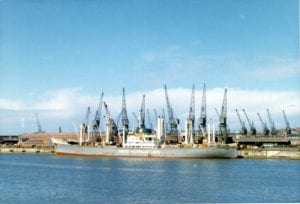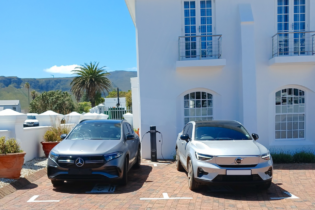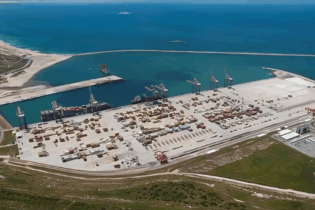Despite an 800km coastline, three ports and two industrial development zones, it is arguable whether or not the Eastern Cape has fully cashed in on government initiatives to energise the country’s maritime economy.
According to president Jacob Zuma, more than R17 billion and 4 500 jobs have been unlocked in the national economy since the launch of Operation Phakisa less than two years ago. A study conducted by the Nelson Mandela Metropolitan University indicated oceans around the country were estimated to have the potential of contributing R54 billion to Gross Domestic Product (GDP) and an estimated 316 000 jobs. South Africa is also one of the top 15 shipping countries in the world in terms of the tonnage transported to and from its ports. This presents significant opportunity in the movement of goods, ship repair, ship chandlers and others services. Border-Kei chamber of business CEO, Les Holbrook, says it is imperative that the city, business and government leaders move together to secure investment in the sector. “As a collective we need to lobby national government and its support agencies for the distribution of incentives, infrastructure and resources in the vast rural areas, including the Wild Coast, connected to the East London harbour and IDZ,” he states. “The development of port infrastructure and efficiencies are central to maritime economic stimulation, as is the continued growth of the IDZ within the Border-Kei region. While these major players will continue to facilitate opportunity, the private sector is required to partner them by grasping incentives and scanning the economic landscape for business opportunities,” added Holbrook.Speaking at the inaugural Eastern Cape Maritime Summit in Port Elizabeth in November last year, South African Maritime Safety Association CEO Tsietsi Mokhele said the Eastern Cape was “slow moving with respect to the opportunities around Operation Phakisa,” even though it had the most compelling case for maritime investment and growth.
According to organiser’s, this year’s Eastern Cape Maritime Summit in October will seek to make seemingly elusive opportunities more accessible and bring clarity as to how government and business can work together. It plans to do this through a conference and exhibition, where industry leaders can share global best practices and case studies on projects and city-wide initiatives, which Buffalo City and its wild coast neighbours could then seek to emulate. Entrance to the exhibition is free to pre-registered trade delegates, scholars and students.






